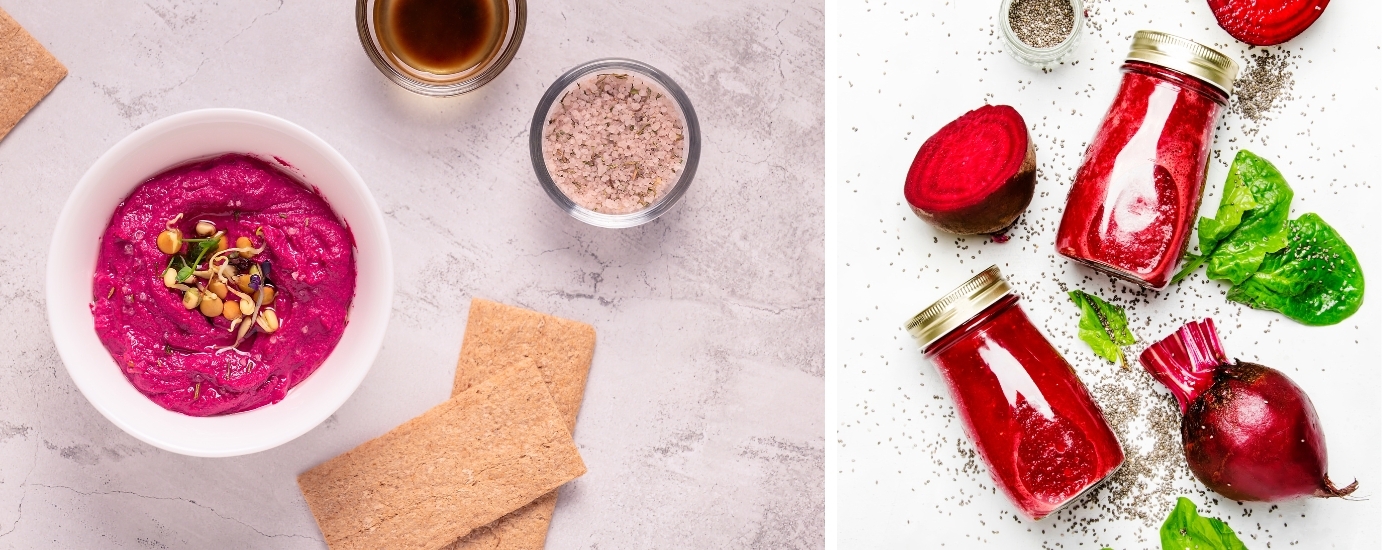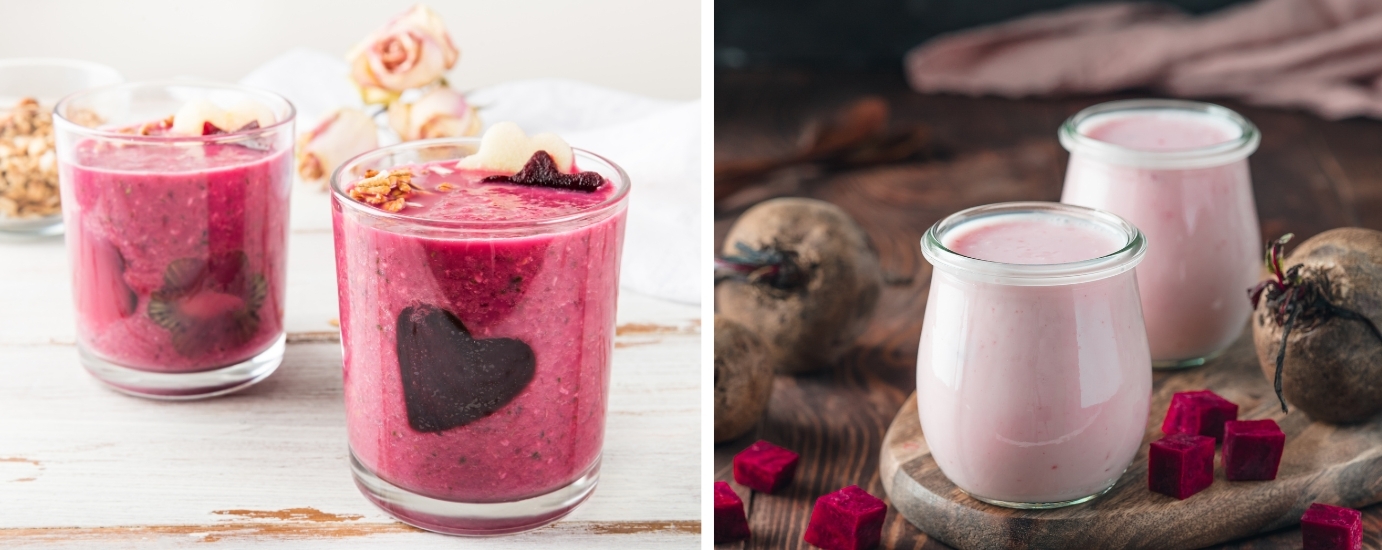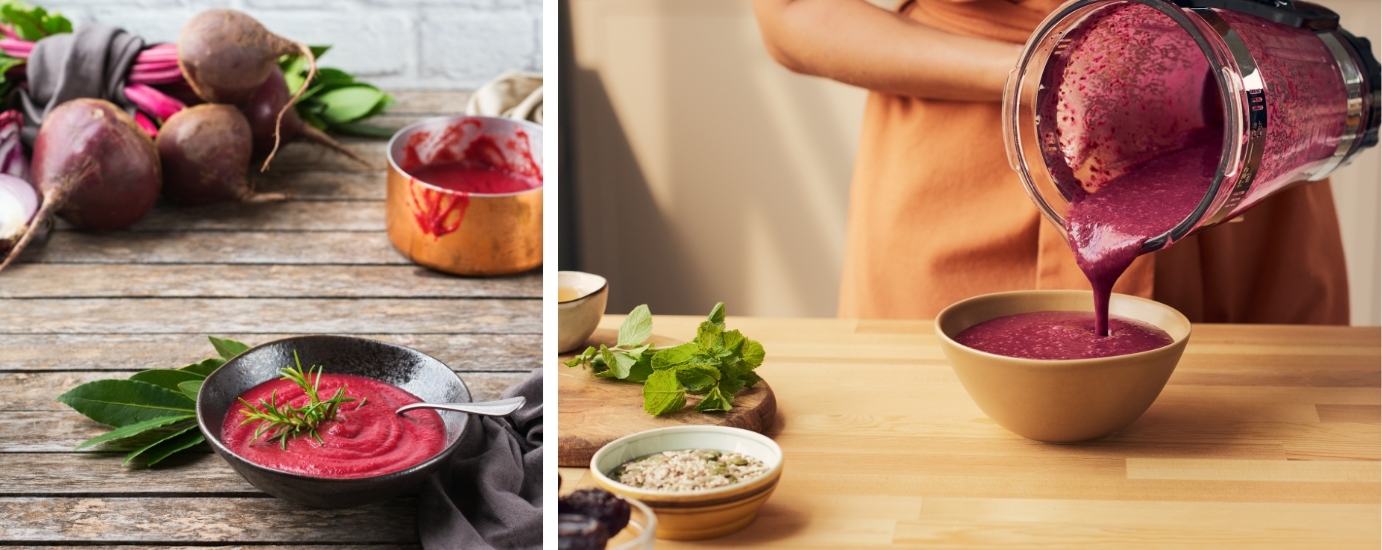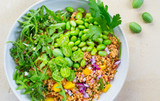Benefits of Beetroot Juice for Health
If you're on the lookout for a natural way to boost your health, look no further than beetroot juice. This vibrant red drink packs a punch when it comes to health benefits and it's a delicious way to get more nutrients into your diet. Whether you're interested in improving your athletic performance, lowering blood pressure, or simply adding more vitamins and minerals to your diet, beetroot juice has something to offer. Its unique combination of nutrients makes it a potent ally for those looking to enhance their wellness through natural means. As more people turn to plant-based solutions, beetroot juice stands out as a particularly powerful option.

Beetroot juice isn't just about addressing specific health issues - it's a comprehensive addition to your dietary habits. Its rich colour signals its antioxidant content, which can help combat oxidative stress in the body. Regular consumption of beetroot juice can contribute to overall vitality and may even have a positive effect on your mood and energy levels. With its myriad of benefits, incorporating beetroot juice into your daily routine could be a simple yet effective strategy for long-term health.
Beetroots are a great source of vitamins and minerals. They're packed with iron, fibre, vitamin C and potassium. But what really sets beetroot juice apart is its high concentration of nitrates. When you consume nitrates, your body converts them into nitric oxide, which can help to relax and widen blood vessels, improving blood flow and lowering blood pressure. This process not only supports cardiovascular health but also enhances nutrient and oxygen delivery throughout the body, benefiting various bodily functions.
In addition to nitrates, beetroot juice contains betalains, which are powerful antioxidants and anti-inflammatory compounds. These components can help reduce the risk of chronic diseases by neutralising free radicals and reducing inflammation in the body. Furthermore, the combination of these nutrients can promote better digestion and liver function, making beetroot juice a multifaceted health booster.
Beetroot and Blood Pressure

One of the most well-known benefits of beetroot juice is its ability to lower blood pressure. Studies have shown that drinking beetroot juice can lead to a significant reduction in blood pressure, thanks to those nitrates we mentioned earlier. If you're looking for a natural way to manage your blood pressure, beetroot juice is worth considering. This natural remedy can be particularly appealing for those who prefer to avoid pharmaceuticals or are looking for complementary therapies.
Moreover, the blood pressure-lowering effects of beetroot juice are not just short-term. Regular consumption can contribute to long-term heart health, potentially reducing the risk of heart disease and stroke. By incorporating beetroot juice into your diet, you're not only addressing current health concerns but also investing in your future well-being.
Boosting Athletic Performance
Want to run faster or cycle further? Beetroot juice might be the secret weapon you've been looking for. The nitrates in beetroot juice can enhance athletic performance by improving the efficiency of mitochondria, the powerhouses of your cells. This means you can exercise longer with less fatigue. Many athletes are turning to beetroot juice as a natural way to gain a competitive edge without relying on artificial supplements.
In addition to improving endurance, beetroot juice may also enhance recovery times post-exercise. The antioxidants and anti-inflammatory properties help reduce muscle soreness and promote quicker healing after intense workouts. Whether you're a seasoned athlete or a casual exerciser, beetroot juice can support your fitness goals in a healthy, natural way.
Beetroot for Brain Health
As we age, our cognitive function can decline, but beetroot juice might help keep our brains sharp. The increased blood flow from nitric oxide can also benefit our brains, potentially improving cognitive function and reducing the risk of dementia. Enhanced circulation ensures that the brain receives adequate oxygen and nutrients, which are crucial for maintaining cognitive abilities and mental clarity.
Incorporating beetroot juice into your diet could also aid in mental alertness and concentration. For those who find themselves frequently fatigued or struggling to focus, the boost in blood flow and oxygenation provided by beetroot juice can be particularly beneficial. By supporting brain health through diet, you can contribute to a more vibrant, alert and capable mind.
How to Prepare Beetroot Juice
Making beetroot juice at home is easy and allows you to control exactly what goes into your drink. Here's a simple recipe to get you started:
Simple Beetroot Juice Recipe
Ingredients:
- 2 medium-sized beetroots
- 1 apple (for sweetness)
- 2.5cm piece of ginger (optional, for a bit of kick)
- 1 lemon (optional, for tanginess)
Instructions:
- Wash and peel the beetroots.
- Chop the beetroots, apple and ginger into small pieces.
- Add everything to a juicer and blend until smooth. If you don't have a juicer, use a blender and strain the mixture through a fine sieve or cheesecloth to remove the pulp. Squeeze in some lemon juice if you like.
And there you have it - a delicious, nutrient-packed beetroot juice! This recipe is versatile, allowing you to adjust the sweetness and tanginess to your preference and can easily be modified with other fruits or vegetables for added flavour and nutrition.
For those who want to experiment further, consider adding ingredients like carrots or spinach for additional vitamins, or a touch of honey if you prefer a sweeter taste. The possibilities are endless, making beetroot juice a customizable option that can suit any palate.
Beetroot Powder – A simple way to add a nutrient boost

If juicing fresh beetroots isn't your thing, you can still enjoy the health benefits by using organic beetroot powder. Organic beetroot powder is a convenient way to incorporate beets into your diet without the hassle of juicing. This alternative is particularly appealing for those with busy lifestyles who still want to benefit from beetroot's nutritional properties.
Organic Beetroot Powder in Australia
In Australia, organic beetroot powder is becoming increasingly popular for its ease of use and health benefits. It can be mixed into smoothies, stirred into water, or even added to baked goods for an extra nutrient boost. Plus, it has a long shelf life, so you can keep it on hand for whenever you need it. This versatility makes it an excellent choice for both culinary experimentation and daily health regimens.
Additionally, organic beetroot powder retains many of the nutrients found in fresh beets, offering similar health benefits in a more concentrated form. It's an ideal option for those who travel frequently or have limited access to fresh produce, ensuring that you can maintain your health goals no matter where you are.
Easy ways to use Beetroot Powder
A simple spoonful of Beetroot Powder adds colour, nutrients and earthy sweetness to almost anything. It’s the perfect way to get a daily boost of beets, even when you’re on the go. Just look for certified organic options with no fillers or additives.
Here are a few easy ways to enjoy it:
- Beetroot Smoothie Booster: Add 1–2 teaspoons of beetroot powder to your morning smoothie with banana, frozen berries and almond milk for a naturally sweet, antioxidant-rich hit.
- Pre-Workout Drink: Mix beetroot powder with cold water, a squeeze of lemon and a pinch of Himalayan salt. It’s a natural nitric oxide booster that may help with stamina and endurance.
- Beetroot Latte: Stir into steamed plant milk with a little honey and cinnamon for a vibrant pink beet latte – a caffeine-free alternative that’s rich in antioxidants.
- Baking with Beets: Add to bliss balls, muffins or even pancake batter for a subtle earthy sweetness and a natural pop of colour (great for kids’ lunchboxes!).
- Savoury Dishes: Sprinkle into hummus, salad dressings or even homemade dips for a nutrient and colour boost.
Can You Eat Raw Beetroot?
Absolutely! Eating raw beetroot is a great way to maximise the nutrients, as cooking can sometimes reduce the levels of certain vitamins and minerals. You can grate raw beetroot into salads for a crunchy, colourful addition. This raw form provides the highest concentration of phytonutrients and enzymes, which can support various bodily functions.
Benefits of Eating Raw Beetroot
Raw beetroot is low in calories but high in fibre, which is great for digestion. It's also a good source of folate, which is important for cell growth and metabolism. So, if you're wondering "can you eat uncooked beetroot?" the answer is a resounding yes! Including raw beetroot in your diet can enhance digestive health and provide a significant portion of your daily nutrient requirements.
Furthermore, raw beetroot can be a delightful addition to your culinary repertoire. Its natural sweetness pairs well with other raw vegetables, nuts and cheeses, allowing you to create vibrant and nutritious salads and appetizers. By embracing raw beetroot, you not only enrich your diet but also add a new dimension to your meals.
Understanding Beetroot's Glycemic Index & Load
For those managing blood sugar levels, understanding the glycemic index (GI) and glycemic load (GL) of foods is important. Beetroot has a moderate GI, which means it can raise your blood sugar levels, but it also has a low GL, meaning the actual impact on blood sugar is minimal due to its low carbohydrate content. This makes beetroot a suitable choice for those monitoring their glucose intake.
Beetroot for Diabetics
While beetroot does have natural sugars, its low glycemic load makes it a safe option for diabetics when consumed in moderation. Plus, the fibre content can help with blood sugar control. Including beetroot in a balanced diet can offer diabetics a way to enjoy flavourful foods without compromising their health goals.
Moreover, the anti-inflammatory properties of beetroot can further support overall health in individuals with diabetes, potentially reducing the risk of complications associated with the condition. By carefully incorporating beetroot into their diet, diabetics can enjoy its benefits while maintaining stable blood sugar levels.
Beetroot Juice and Weight Loss
Beetroot juice is low in calories and high in nutrients, making it an excellent choice for those looking to lose weight. The fibre in beetroot helps you feel full, reducing the likelihood of overeating. Additionally, the improved blood flow from nitric oxide can enhance your workout performance, helping you burn more calories. This combination of benefits makes beetroot juice a strategic addition to weight management plans.
Incorporating beetroot juice into your diet can also support metabolic health. The nutrients found in beets can aid in efficient energy production and utilization, making it easier for your body to burn fat and maintain a healthy weight. By choosing beetroot juice, you're opting for a natural, nutrient-dense beverage that complements an active lifestyle and balanced diet.
Embrace the Beetroot Goodness
Whether you prefer to sip on a glass of freshly made beetroot juice, stir organic beetroot powder into your morning smoothie, or snack on raw beetroot slices, there are countless ways to enjoy the benefits of this superfood. From boosting athletic performance to supporting heart health and weight loss, beetroot is a versatile and nutritious addition to any diet. Its adaptability in various culinary applications makes it easy to incorporate into your daily routine.
So go ahead, embrace the beetroot goodness and discover the many ways this humble root vegetable can enhance your health and well-being. Your body will thank you! By making beetroot a regular part of your diet, you're taking a proactive step towards a healthier, more vibrant life. Whether you're seeking specific health benefits or simply looking to enrich your nutritional intake, beetroot offers an array of advantages that can support your journey to wellness.




![Introducing Sprout Organic [Supplier Spotlight] Introducing Sprout Organic [Supplier Spotlight]](https://cdn11.bigcommerce.com/s-dis4vxtxtc/images/stencil/160w/uploaded_images/sprout-blog-thumbnail.jpg)
